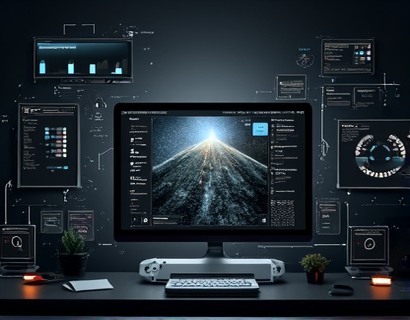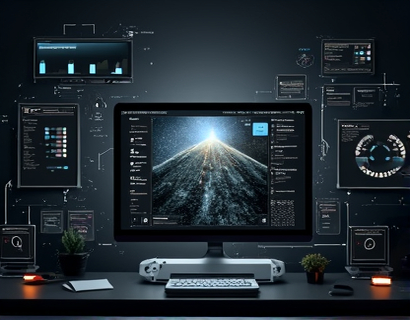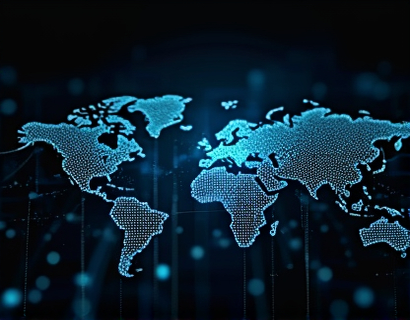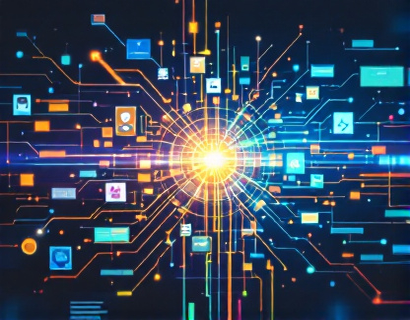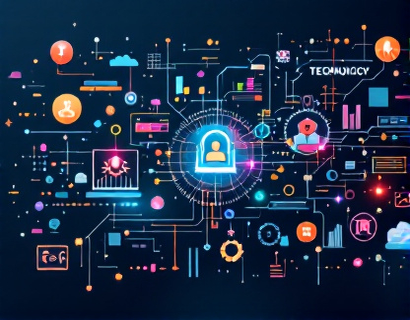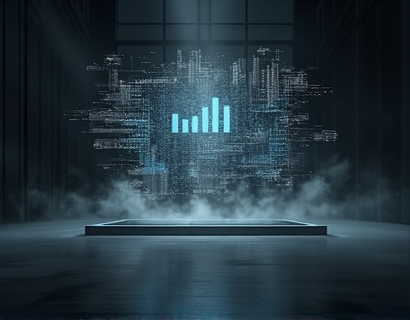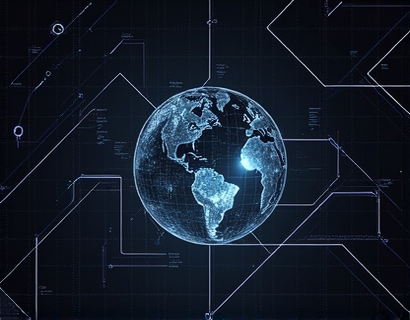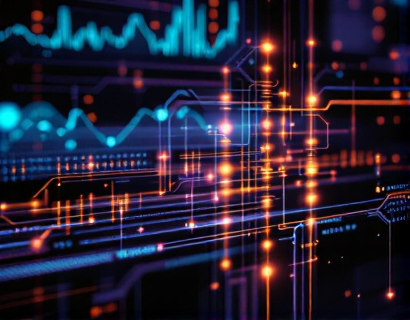AI-Powered Life Management: Unlocking Productivity with Intelligent Insights and Personalized Guidance
In the fast-paced world of today, managing personal and professional life efficiently is more crucial than ever. The integration of Artificial Intelligence (AI) into life management tools has opened new avenues for individuals seeking to enhance their productivity and achieve their goals. An AI-powered personal assistant serves as a sophisticated tool that leverages intelligent insights and personalized guidance to simplify decision-making and boost productivity. This advanced technology streamlines task management and acts as a trusted companion in navigating daily challenges, making it easier to optimize life through innovative solutions.
The concept of an AI-driven personal assistant is not new, but recent advancements in machine learning and natural language processing have significantly enhanced its capabilities. These assistants can understand and interpret complex tasks, provide actionable advice, and adapt to individual preferences and behaviors over time. By integrating such a tool into daily routines, individuals can experience a transformative shift in how they manage their time, prioritize tasks, and make informed decisions.
Enhancing Decision-Making with Intelligent Insights
One of the primary benefits of an AI-powered personal assistant is its ability to offer intelligent insights that aid in decision-making. By analyzing vast amounts of data, these assistants can identify patterns, predict outcomes, and suggest the best courses of action. For instance, when faced with a complex project at work, an AI assistant can evaluate the available resources, estimate timelines, and recommend optimal strategies to achieve the desired results. This level of insight not only saves time but also reduces the likelihood of errors, leading to more successful outcomes.
Moreover, AI assistants can provide real-time feedback and adjustments based on changing circumstances. For example, if a sudden change in market conditions affects a business project, an AI assistant can quickly reassess the situation and propose alternative approaches. This dynamic adaptability ensures that individuals are always making the best decisions, even in rapidly evolving environments.
Personalized Guidance for Tailored Productivity
Every individual has unique strengths, weaknesses, and preferences that impact their productivity. An AI-powered personal assistant recognizes these differences and offers personalized guidance to maximize efficiency. By learning from user interactions and feedback, the assistant can tailor recommendations to suit individual needs. For instance, it might suggest specific time management techniques, prioritize tasks based on importance and urgency, or even adjust work schedules to align with peak productivity periods.
Personalization extends to habit formation and behavior change as well. AI assistants can identify patterns in daily routines and suggest modifications to foster positive habits. For example, if someone struggles with morning productivity, the assistant might recommend a gradual wake-up schedule combined with motivational messages to help establish a consistent morning routine. Over time, these small changes can lead to significant improvements in overall productivity and well-being.
Streamlining Task Management
Task management is a critical aspect of daily life, and an AI-powered assistant excels in this area. By integrating with various calendars, to-do lists, and project management tools, the assistant can provide a centralized platform for managing all tasks and responsibilities. Users can input tasks, set deadlines, and assign priorities, and the AI will organize them into a coherent plan. This not only saves time but also ensures that nothing falls through the cracks.
Furthermore, AI assistants can automate repetitive tasks, such as scheduling meetings, sending reminders, and updating progress reports. This automation frees up mental bandwidth, allowing individuals to focus on more strategic and creative work. The assistant can also proactively suggest batch processing of similar tasks, optimize the order of tasks based on dependencies, and even delegate tasks to team members if working in a collaborative environment.
Navigating Daily Challenges with Confidence
Life is full of unexpected challenges, and having a reliable companion to navigate these obstacles can be invaluable. An AI-powered personal assistant acts as a constant support system, offering guidance and solutions when needed. Whether it's managing stress, balancing work and personal life, or making important life decisions, the assistant can provide tailored advice and resources. For example, if someone is feeling overwhelmed, the AI might suggest mindfulness exercises, breathing techniques, or even recommend a break to recharge.
In professional settings, the assistant can help manage stress by analyzing workloads and suggesting realistic deadlines. It can also provide insights into effective communication strategies, conflict resolution, and leadership skills. By addressing these challenges proactively, individuals can maintain their mental and emotional well-being, leading to greater job satisfaction and personal fulfillment.
Optimizing Time and Energy
Time and energy are finite resources, and managing them effectively is key to achieving success. An AI-powered personal assistant helps optimize these resources by identifying time-wasting activities and suggesting more efficient alternatives. For instance, it can analyze how time is spent throughout the day and identify patterns of procrastination or distractions. Based on this analysis, the assistant can propose strategies to minimize distractions, such as setting specific times for checking emails or using focus-enhancing techniques like the Pomodoro Technique.
Energy management is equally important. The assistant can monitor work patterns and suggest optimal times for taking breaks, exercising, or engaging in self-care activities. By ensuring that individuals are well-rested and energized, the AI helps maintain high levels of productivity and creativity throughout the day. This holistic approach to time and energy management ensures that individuals can sustain their efforts over the long term, rather than burning out quickly.
Building Habits and Achieving Goals
Habits and goals are the building blocks of success, and an AI-powered personal assistant can play a significant role in fostering positive habits and achieving long-term objectives. By setting clear, achievable goals and breaking them down into manageable steps, the assistant helps individuals stay focused and motivated. It can also track progress, provide regular feedback, and celebrate milestones to reinforce positive behavior.
Habit formation is a gradual process, and consistency is key. The AI assistant can use behavioral science principles to design habit-building strategies that fit individual lifestyles. For example, it might suggest starting with small, incremental changes and gradually increasing the difficulty as the habit becomes more ingrained. Additionally, the assistant can integrate with wearable devices and health apps to monitor physical activity, sleep patterns, and nutrition, providing comprehensive insights to support overall well-being.
Enhancing Learning and Development
Continuous learning and personal development are essential for staying competitive in today's rapidly changing world. An AI-powered personal assistant can facilitate this process by recommending relevant courses, books, and resources based on individual interests and career goals. It can analyze industry trends, identify skill gaps, and suggest targeted learning paths to help individuals stay ahead of the curve.
Moreover, the assistant can create personalized learning schedules, taking into account available time and preferred learning styles. Whether someone learns best through videos, podcasts, or interactive courses, the AI can curate content that aligns with these preferences. Regular check-ins and progress tracking ensure that learning remains a consistent and rewarding part of daily life.
Integration with Smart Home Devices
The convenience of an AI-powered personal assistant extends beyond digital tasks to physical environments, especially when integrated with smart home devices. By controlling lighting, temperature, and entertainment systems with voice commands or automated routines, the assistant can create a seamless and comfortable living space. For example, it can adjust the lighting to promote focus during work hours and transition to relaxing settings in the evening.
Smart home integration also enhances security and energy efficiency. The assistant can monitor door locks, surveillance cameras, and energy usage, providing real-time alerts and recommendations to ensure a safe and sustainable home. This level of integration not only simplifies daily routines but also contributes to a more sustainable lifestyle.
Building a Supportive Ecosystem
An AI-powered personal assistant does not operate in isolation; it is part of a broader ecosystem of tools and services designed to enhance productivity and well-being. By integrating with other smart devices, productivity apps, and health trackers, the assistant creates a cohesive system that supports various aspects of life. This ecosystem approach ensures that all elements of daily life work together harmoniously, providing a comprehensive solution for individuals seeking to optimize their routines.
Furthermore, the assistant can connect with professional services, such as virtual coaching, therapy, or financial planning, offering a holistic support network. This interconnectedness allows for seamless transitions between personal and professional life, ensuring that all areas receive the attention and care they need.
Conclusion
AI-powered personal assistants represent a significant leap forward in life management, offering intelligent insights and personalized guidance to enhance productivity and achieve success. By streamlining task management, providing tailored advice, and integrating with various smart devices, these assistants transform the way individuals navigate daily challenges. As technology continues to evolve, the potential for AI to support and empower individuals will only grow, making it an indispensable tool for those committed to optimizing their lives.




